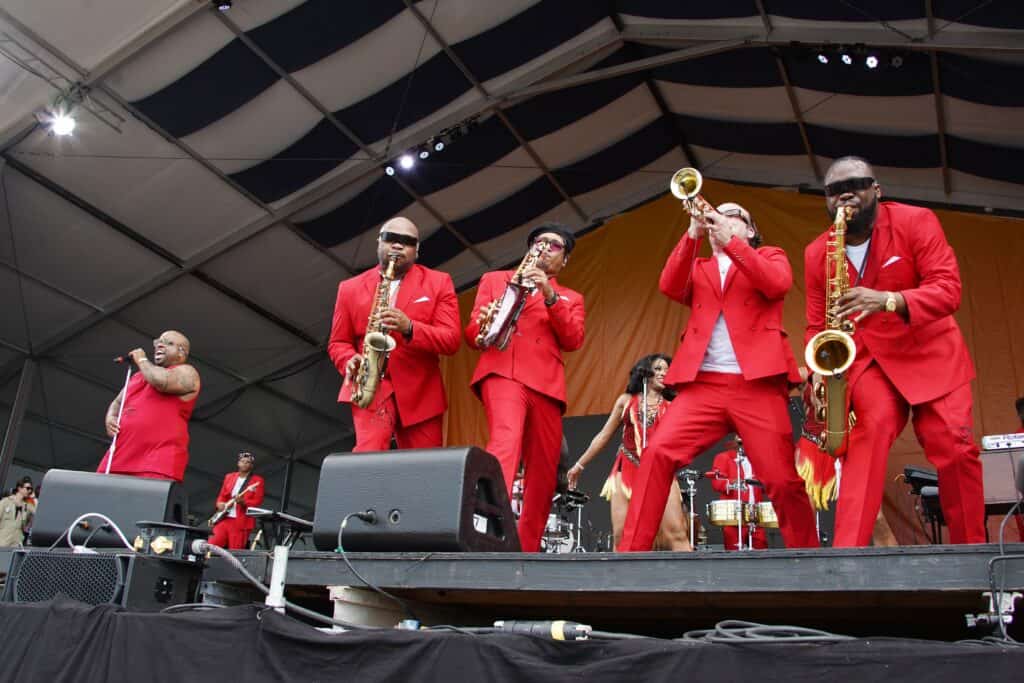BY: LIAM PENDERGRASS
There are numerous employment opportunities within the music industry beyond being a spotlight performer. Rising music professionals may find that their passion for music and musical training can open doors to a variety of fields and new skill sets that lead to lucrative careers and entrepreneurial paths. Many music industry professions require a level of risk assumption, as any business path does, but several careers in the music industry can bring in a high level of income or help growing professional musicians to supplement their gig work. Let’s review some of the various career paths that are the top-paying opportunities in the industry today.

Most Lucrative Careers in the Music Industry . . . and other music jobs
Acoustic Design Consultant
Though they are hardly household-name celebrities, acoustic consultants play a vital role in most professional recordings in the modern music world. An acoustic consultant is a sound and design expert hired to examine a room’s vibrational and noise response and create an ideal acoustic environment for recording. Acoustic consultants typically oversee a team to build, transport, and install soundproofing materials or room-shaping panels into recording studios. While this career brings the usual risks and challenges of owning and maintaining a physical business, the costly nature of recording facilities and the level of customization and time needed to do this work can lead to lucrative and even high-profile design jobs.
Music Production Supervisor
Music production supervisors oversee music for the most exciting projects in entertainment, working with television, movie, online content, and video game production teams to finalize all music-related aspects of a project. As a music production supervisor, you will oversee the selection and licensing of existing music for a project, and the financial aspects of such licensing. This position combines the need for an understanding of music in media and various entertainment business skills and can bring exciting work opportunities.
Music Attorney
Attorneys are constantly needed across all industries and aspects of society, and the music industry is no different. A music attorney is a specialized entertainment lawyer who deals in many aspects of the music industry. Music attorneys are often hired to help artists with contract reviews, offers and agreements for performance and music representation opportunities, and royalty-related dealings. These music attorneys become a resource for professional musicians of all levels and can find steady, high-paying work with the right networking and prowess.
Music Director
Music directors work for organizations across multiple industries, overseeing music for religious establishments, schools, symphonies, theater productions, and films. A music director is often the primary conductor of a larger music group and the arranger of live music for a production or live event. They may also oversee the fundraising, recruitment of musicians, and correspondence with administrative cohorts to maintain a music department within an organization.
Artist Manager
Artist managers oversee the day-to-day administrative tasks involved in maintaining an artist’s career. Managers are highly invested in their artists’ careers, representing them in business transactions and working as public relations agents, supervising the artists’ schedules, overseeing marketing strategy, and offering support in virtually any area the artist may need. This career path can bring freelance opportunities and employment with record labels and management firms.
Music Producer
The role of a music producer has changed vastly as the music industry has evolved, but the need for music producers and the variety of opportunities available is higher than ever. Music producers use an understanding of musicianship and studio techniques to oversee recording projects. In the modern music industry, many producers use live and MIDI instrumentation to create tracks and oversee the arrangements of recordings. Music producers work in a variety of settings, both independently and for established studios, record labels, and specific bands and artists.
Music Publicist
Music publicists work with artists to create a brand image and oversee all public and media relations. They build and implement plans to advertise music releases and tours and manage social media presence and image for an artist. A music publicist’s main job is to bring and maintain attention from an artist’s fanbase and navigate any issues that arise with an artist’s public presentation. These individuals work as freelance entrepreneurs or for a larger firm to correspond with media outlets and meet the promotional goals for an artist’s project.
Tour Manager
Tour managers are hired by artists or record labels to oversee the planning and implementation of a tour schedule. They will travel with musicians and make sure everything runs smoothly, managing lodging and dining, coordinating with venues and media appointments, and handling the financial aspects of a tour. Tour management is a field best worked into through festival work, touring, or promotional experience. It can lead to promising freelance work and even positions with top record labels and artists.
Audio Engineer
Audio engineers are needed in every corner of the entertainment industry, from working as live sound technicians at concerts and events to overseeing studio recording sessions. This profession requires an extensive understanding of music technology and DAW use. With a strong understanding of sound manipulation and studio techniques, audio engineers can work in numerous fields recording, editing, live or studio mixing, and mastering music.
Session Musician
Musicians of all instrumental disciplines may find themselves working in a recording studio session during their career. Session musicians are highly-trained and experienced studio musicians that are hired for professional recording sessions. Proficiency on an instrument, music theory, and an understanding of recording technology are needed to find steady session work. Session musicians often find themselves living and working in recording hubs like Nashville and Los Angeles, touring with pop artists or appearing in various television and video performances as supplemental instrumentalists to established bands. Many session musicians today are also able to work from their home studio, building a network of clientele and overseeing all aspects of tracking their instruments.
Concert Promoter
Concert promoters often overlap with many other professions in the music industry, working independently to organize, produce, and market live music events. These music professionals work with a network of venues and musician representatives to build concert promotion entities and work on music events of all sizes. This is a competitive field that requires attention to detail in all aspects of the live music industry and a strong understanding of time management and financial planning.
Music Therapist
Music therapy is a fast-growing profession in the health field that combines musicianship with therapeutic training to solve a wide range of individualized rehabilitation and mental health goals. A high level of specified undergraduate training and official board certification are required to work in this discipline. However, music therapists find employment opportunities in health and correctional facilities, elderly homes, private practice or music therapy companies, community centers, and nonprofit organizations.
Music Teacher
Many talented musicians find themselves working as educators during their professional careers, either as full-time instructors, or part-time educators supplementing their other musical endeavors. Depending on their level of education and certification in music education, musicians may teach all age groups in public and private schools, provide instruction at the higher education level, or teach private lessons at an establishment or independent practice.
Music Journalist
Music journalists use print and video mediums to spread news about the music industry. Music journalists may work for blogs, magazines, websites, TV and online broadcast entities to review concerts and music releases, create biographical content for artists and bands, and report on current events in the music industry. A strong understanding of music and the music industry and close attention to happenings in the music world can bring numerous opportunities for talented writers.
How to Start a Career in the Music Industry
Kicking off your music career starts with applying to and getting accepted into a top music school of your choice. We believe every music student should have the guidance they need to put their best foot forward at every stage of college music admissions. We understand how time-consuming it is to research music schools and make the right selections and decisions. That’s why for 15 years, we’ve helped hundreds of parents and students navigate college and graduate music school admissions. With our knowledge of universities, conservatories, their faculty, and music programs, we’re able to recommend the right schools and improve students’ probability of acceptance and success.
Learn more about what we do as music admissions consultants, and reach out to us to talk about what you’re looking for in a music school. We’ll help you find the best path to kick off your music industry career.

Liam Pendergrass
Liam Pendergrass is a professional multi-instrumentalist, singer-songwriter, and educator from central North Carolina. He currently performs as a touring solo artist, band leader for blues/funk trio “Liam & The Nerdy Blues”, and lead guitarist for indie rock band “Swim in the Wild.” Liam is a Catawba College alumni and former adjunct that has performed and recorded with many noteworthy musicians during his career. Aside from performance, Liam specializes in private guitar, bass, and music theory instruction and works as a writer and researcher for Inside Music Schools.
